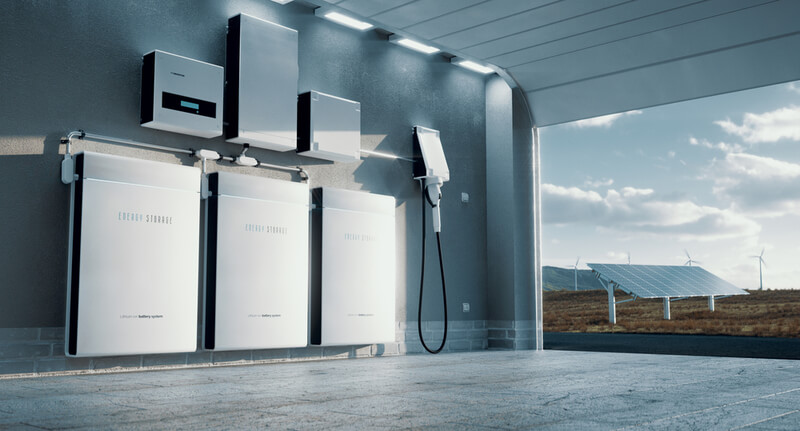Gas generator backups and lithium battery storage systems serve as backup power solutions, but they have different features and considerations.

Gas Generator Backup:
- Power Output: Gas generators can provide high power output, making them suitable for running heavy appliances and larger electrical loads.
- Continuous Power: Gas generators can provide power for an extended period as long as you have a steady supply of fuel (usually gasoline, propane, or natural gas).
- Fuel Availability: You need to store an adequate amount of fuel to ensure prolonged power availability. This could be a drawback during fuel shortages or emergencies.
- Maintenance: Gas generators require regular maintenance, including oil changes, filter replacements, and other upkeep tasks. They can be prone to mechanical issues over time.
- Noise and Emissions: Gas generators can be noisy and produce exhaust emissions, which might not be suitable for residential areas or environmentally sensitive locations.
- Start-up Time: Gas generators require time to start up and stabilize before providing power, which can be a limitation if you need instant power.
Lithium Battery Storage System:
- Power Output: Lithium battery storage systems can provide power based on their capacity, but their output might not be as high as gas generators for heavy loads.
- Limited Runtime: Battery systems have a limited runtime based on their capacity. They’re suitable for shorter power outages but might not be practical for extended periods without a recharge source.
- Fuel Independence: Battery systems don’t require a constant supply of fuel. They store energy when power is available (e.g., from solar panels or the grid) and release it when needed.
- Maintenance: Battery systems generally require less maintenance compared to gas generators. However, the batteries might degrade over time and need replacement.
- Noise and Emissions: Battery systems are quiet and emissions-free, making them suitable for residential areas and environmentally conscious individuals.
- Instant Power: Battery systems can provide power instantly when they’re charged, making them a good choice for critical loads that need immediate power.

Considerations:
- Use Case: Gas generators are often preferred for scenarios requiring high power output, such as running heavy machinery or during extended power outages. Battery systems are better suited for shorter power disruptions and situations where noise and emissions are concerns.
- Cost: Gas generators can have a lower upfront cost, but ongoing fuel expenses and maintenance can add up. Battery systems might have a higher initial investment but lower operating costs.
- Environment: Battery systems are more environmentally friendly due to their lack of emissions, while gas generators contribute to air pollution and noise pollution.
- Ease of Use: Battery systems are generally easier to operate and require less ongoing attention compared to gas generators.
In summary, the choice between a gas generator backup and a lithium battery storage system depends on your specific needs, budget, environmental considerations, and the duration of backup power required. It’s also worth considering renewable energy sources like solar panels in conjunction with battery storage for a cleaner and more sustainable backup power solution.
